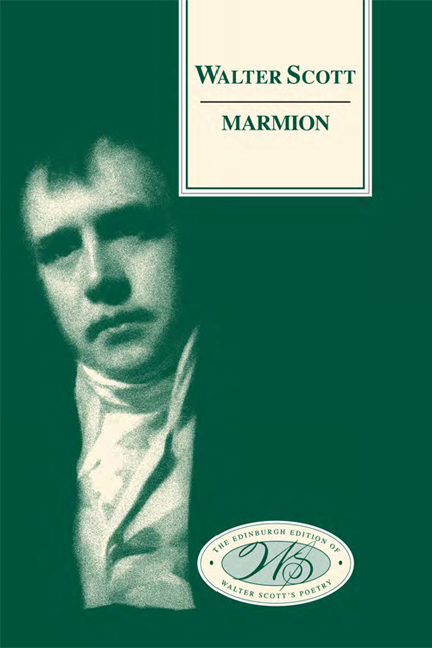General Introduction
Published online by Cambridge University Press: 05 May 2021
Summary
Even although Scott's literary reputation has been transformed by a tide of critical studies by international scholars, and by the first critical edition of his novels which appeared between 1993 and 2012, little attention has been paid to the poetry. One of the reasons for this situation is that there has never been a scholarly edition, and no complete edition is in print. The Edinburgh Edition of Walter Scott's Poetry will be the first to provide a reliable text, and it will be the first to make all his poetry available. No previous edition has been as comprehensive, and none claiming to be comprehensive has appeared for over one hundred years.
On historical grounds the neglect of Scott's poetry is curious. It was his poetry that defined the new sensibility which is now termed ‘Romanticism’. His poetry was incomparably the most popular in the first decade of the nineteenth century: in 1810 the publication of The Lady of the Lake was the media event of the year and over 25,000 copies were sold in the first twelve months. His success was dazzling: readers could not get enough of his work. Further, to understand Scott it is necessary to understand his career as a poet, for it was his poetry, particularly The Lay of the Last Minstrel, Marmion and The Lady of the Lake, which first established his reputation.
Of course, Scott did not help himself. In the Introduction to Rokeby he made a typically self-effacing suggestion that the emergence of Byron as a major (and arguably darker and sexier) poet caused him to abandon his poetic endeavours and turn to writing fiction; this almost certainly instigated in later generations a sense that his poetry was less significant than the novels that followed. In fact Scott's narrative distorts the actualities of his poetic career. What we now consider to be Scott's major poetic achievements, The Lay of the Last Minstrel, Marmion and The Lady of the Lake, were certainly all published before the appearance of Childe Harold's Pilgrimage, Cantos I and II, in 1812, but Scott wrote several more significant narrative poems after this date, including Rokeby (1813) and The Lord of the Isles (1815).
- Type
- Chapter
- Information
- MarmionA Tale of Flodden Field, pp. ix - xviPublisher: Edinburgh University PressPrint publication year: 2018



